Fibre and Protein for Losing Weight
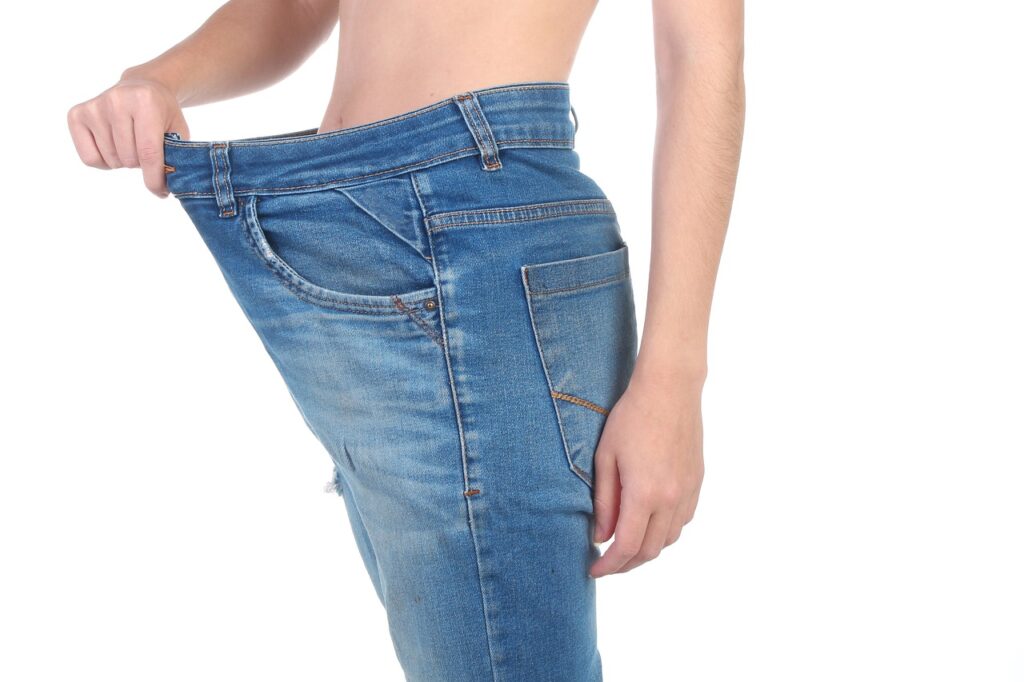
There are two nutrients which are especially important when trying to lose weight as they are filling and low in calories. These nutrients are fibre and protein. Fibre absorbs water in the intestines and expands. This gives the feeling of fullness whilst at the same time stimulating the movement of food along the intestines. It has been shown that protein may help to curb appetite whilst at the same time giving a feeling of fullness and slightly boosting metabolism. However, it is very important to choose your proteins wisely as, like all other foods, if you’re eating more than your body needs, it will show up on the scales as a gain, instead of a loss.
Superfoods for Weight Loss
The following superfoods are smart, low calorie choices that will benefit your weight loss efforts:
1. Fruits
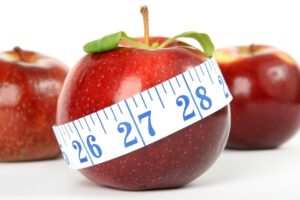
Fruits (especially those with an edible peel) are high in fibre. Fibre takes a long time to digest and so the high fibre content makes you feel full for longer. Apples give you a feeling of fullness as they are 86% water and have a high fibre content. In fact, studies have shown that people who ate apple slices before a meal felt fuller than those who did not. In addition, they showed that people who started their meal with apple slices ate on average 200 fewer calories than those who didn’t and, even though they ate less calories, they still felt fuller than those who ate more.
Citrus fruits such as oranges, grapefruits, tangerines and lemons are also useful in people who want to lose weight. This is because the potassium in citrus fruits helps combat bloat, while the antioxidants fight inflammation, which is associated with belly fat storage.
2. Avocados
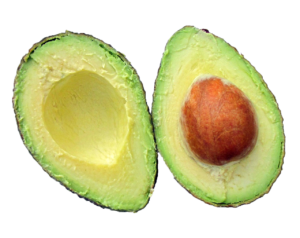
There is evidence to suggest that avocados can help you lose weight.
The combination of fat and fibre in avocados has the effect of making you feel full for longer. In fact, studies have shown that 28% of adults who added half a fresh avocado to their lunch were less likely to feel hungry after eating for the next 5 hours. Eating fat slows down the breakdown of carbohydrates, which in turn helps to keep blood sugar levels stable. Avocados are full of healthy, beneficial fats and fibre which help to keep you full and satiated.
The high fibre content ensures that the intestines work smoothly. Avocados contain both soluble and insoluble fibre. Soluble fibre, such as pectin, is important for maintaining healthy blood sugar and cholesterol levels. Fibre also slows the movement of food through the digestive tract which in turn nourishes the beneficial gut bacteria. A healthy bacterial gut flora is linked to a lower risk of obesity.
Regularly incorporating avocados in your diet, which are high in fibre and low in carbohydrates, should promote weight loss over time.
3. Eggs
Eggs are among the most nutritious foods you can find, providing virtually all the vitamins and minerals you need. They are an especially good source of vitamin E and protein. For only 70 calories, a single egg contains protein, iodine, riboflavin, vitamin D, and high amounts of selenium, choline, vitamin B12, and vitamin A. Eggs give you a feeling of fullness and, in fact, studies have shown that overweight women who ate eggs for breakfast instead of bagels, ate less for the next 36 hours (as eggs give a sense of fullness).
To top things off, eggs are cheap, taste awesome and go with almost any food.
4. Water
Water is your body’s lifeblood and it should be drank throughout the day. It’s a great no-calorie drink which helps to flush out toxins from the body. Water can also help you feel full and so, when those hunger pangs strike, try drinking a glass of water before grabbing a snack.
5. Low-calorie green salads
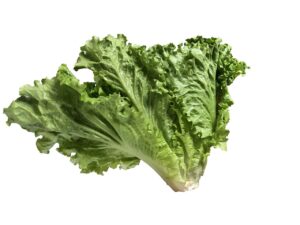
Having a low-calorie salad (which is not defined as one that’s loaded with croutons, high fat dressings, and cheese) as a first course can help you feel full, thereby reducing how much you eat with your main course. Lettuce, which is a great filler food, adds lots of volume to your salad for little to no calories, together with cabbage which is high in fibre are good options. Wisely choosing the ingredients to ensure its high fiber content is the key to helping you fight cravings later in the day.
6. Beans and legumes
Beans and legumes (including peas, lentils, chick peas and kidney beans) are excellent sources of dietary fibre, protein, B vitamins and many other important vitamins and minerals. The combination of fibre and protein make you feel full for longer, which means they may reduce your in between meal snacking. They have been shown to help reduce blood sugar, improve cholesterol levels and help maintain a healthy gut.
7. Leafy green vegetables
These include spinach, kale and collard greens and are ideal for weight loss as they contain very few calories and are high in fibre. In addition, they contain high levels of many vitamins, antioxidants and minerals, including calcium, which has been shown to help fat burning. Eating leafy greens increases the volume of your meals without increasing the calories. Spinach is actually not as good for you as kale and collard greens, but it is more versatile and can be eaten in far more ways than just salad. It can therefore easily become a staple in your cuisine.
8. Cruciferous Vegetables
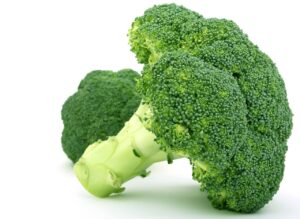
These include broccoli, cauliflower, cabbage, Brussel sprouts and kohrabi. They are incredibly filling as they contain high levels of fibre and relatively decent amounts of protein. The combination of protein, fibre and low energy density makes cruciferous vegetables the perfect foods to include in your meals if you need to lose weight.
Prepared simply in a sauté or baked on a sheet pan, these vegetables are low in calories; but when eaten raw, they retain all of their phytonutrients, including a slew of minerals and vitamins (from calcium to zinc) that may be insufficient elsewhere in your diet.
9. Salmon
Fatty fish such as salmon are incredibly healthy and very satiating, keeping you full for several hours with relatively few calories.
Salmon contains high levels of omega-3 fatty acids (which help reduce inflammation which plays a major role in obesity and metabolic disease), high quality protein and other beneficial nutrients such as, potassium, vitamin D, selenium, vitamin B12, and small amounts of vitamin A. Studies have found that the vitamin D found in each fillet may assist in weight management in overweight individuals. A three ounce serving provides 150 calories and has almost everything you need all in one grilled piece of fish. It is also low in fat and cholesterol (high in good cholesterol), and is a great addition to anyone’s diet.
Other types of fatty fish such as mackerel, trout and sardines and are also excellent.
10. Tuna
Tuna is another healthy fish which is packed with healthy fats, omega-3s and lean protein and which is low in fat and calories. It keeps you full for longer and so stops the urge for in between meal snacks.
11. Wholegrain breads and cereals.
Whole grains have been a part of the human diet for tens of thousands of years but they have a bad reputation when it comes to weight loss. This is because refined grains are linked to health problems such as obesity and inflammation.100% whole grains such as, oats, brown rice and quinoa are bloat-busting superstars that are packed with minerals and counter balance sodium intake throughout the day.
Whole grains contain high levels of fibre and relatively high levels of protein. Eating whole grains is associated with various benefits, including a lower risk of diabetes, heart disease, and high blood pressure. One of the easiest ways to give your daily diet a whole-grain boost is to have a bowl of high-fibre whole grain cereal as breakfast or a snack.
12. Oatmeal
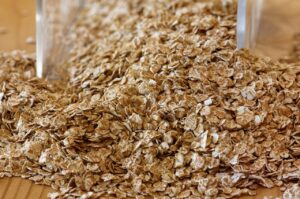
Oats are an incredibly nutritious gluten-free whole grain packed with vitamins, minerals, fibre and antioxidants; in fact, their fibre and protein content is higher compared to other grains. Oats contain some unique ingredients, such as the soluble fibre beta-glucan and antioxidants called avenanthramides.
Studies have shown that oats and oatmeal have many health benefits including weight loss, lower blood sugar and cholesterol levels, a reduced risk of heart disease, protection against skin irritation and reduced constipation.
In addition, they are very filling and are among the healthiest foods you can eat.
13. Quinoa
Quinoa is a whole grain food which is rather bland but can easily be flavoured with things such as lemon, garlic, oils, salt, and other flavours to make it taste significantly better. It is extremely high in both protein and fibre, and is also a good source of iron and magnesium.
14. Lean Meats
Protein is one of the most filling nutrients. Eating a high-protein diet can make your body burn up to 80-100 more calories per day. In fact, studies have shown that increasing your protein intake to 25% of daily calories can reduce cravings by 60%, reduce late-night snacking by half and cause weight loss of almost half a kilo per week.
Lean meats such as lean beef, chicken breast and turkey are weight loss friendly foods as they are high in protein and low in fat.
15. Almonds and other nuts
These are great sources of healthy fats, fibre, protein, magnesium and vitamin E. Nuts are a great high fat snack to help keep you feeling full. Of all the nuts, almonds contain the highest levels of fibre and so keep you feeling full for longer.
Almonds may lower blood sugar levels whilst promoting weight loss. In fact, studies have shown that eating nuts can lower blood sugar levels which lead to reduced hunger, improved metabolic health and can promote weight loss. Nuts are fairly high in calories and so should be eaten in moderation.
16. Natural peanut butter
Peanut butter contains 8g of protein and up to 4g of fibre per serving, making it an ideal snack to help you fill up and stay feeling full. Studies have found that peanut butter can help people feel more satiated compared to carbohydrate snacks like rice cakes in equal quantities. Peanuts contain an amino acid that improves blood flow throughout the body as it helps blood vessels to relax which helps reduce fluid retention.
As well as protein and fibre, peanut butter is rich in several other nutrients, including several essential vitamins and minerals, such as magnesium, potassium and zinc which may help protect the heart and manage blood sugar and body weight.
However, peanut butter should be eaten in moderation as eating too much can increase a person’s daily intake of saturated fat, sodium, and calories.
17. Pumpkin
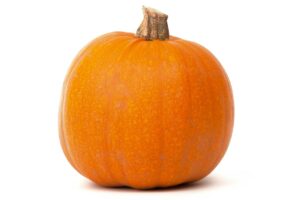
Pumpkin has more fibre than quinoa and more potassium than a banana. Pumpkin puree is great for cooking purposes and snacking when you have hunger pangs. Pureed pumpkin can easily be added to unsweetened Greek yogurt with cinnamon and chopped pears for a nutritious dessert.
18. Pumpkin Seeds
Pumpkin seeds have a very high level of immune-boosting zinc, but more importantly, are a significant source of fibre. They are quite a filling snack with about 7 grams of protein per snack-sized serving. Pumpkin seeds are a great addition to most diets.
19. Chia Seeds
Chia seeds, like most seeds, are a source of healthy plant based fat and nutrition. They also contain 11g of fibre per ounce, which is very high. This gives them a unique property that gives them an edge for controlling hunger. When mixed with water, chia seeds expand to up to 10 times their sizes, forming a gel that fills the stomach and keeps you satisfied for hours. Chia seeds should always be part of a weight loss diet.
20. Raspberries
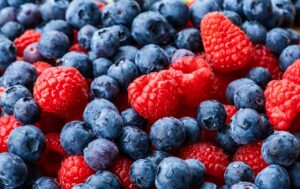
Compared to other berries, raspberries have a very high fibre content whilst being low in calories but rich in vitamins, minerals and antioxidants. They may protect against diabetes, cancer, obesity, arthritis and other conditions. Raspberries are easy to add to your diet and make a tasty addition to breakfast, lunch, dinner or dessert.
21. Blueberries
Blueberries are high in fibre but also have very high levels of antioxidants. They contain less sugar than most other fruits and are a satisfying, sweet, healthy choice at snack time or for dessert.
22. Soup
Soups can help reduce hunger when eaten before meals and increase your feeling of fullness, meaning you eat significantly fewer calories. Do not add too much fat to the soup, such as cream or coconut milk, as this will significantly increase its calorie content.
23. Yoghurt
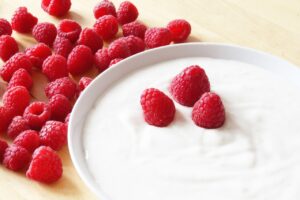
Due to their combination of protein and carbohydrates, yoghurts may help keep hunger pangs at bay. In addition, live yoghurts contain probiotic bacteria which can improve the functioning of the intestines. Eat full fat live yoghurts and avoid low fat ones as they usually have a higher sugar content. Studies show that full-fat yoghurt is associated with a reduced risk of obesity and type 2 diabetes over time.
24. Sweet Potatoes
A medium sized orange sweet potato only contains 100 calories while being high in fibre, potassium and beta-carotene (vitamin A). Their high fibre and mineral rich content helps to prevent and relieve bloat.
25. Green Tea
The catechins (helpful phytochemicals) in green tea may trigger weight loss by stimulating the body to burn calories and mildly decrease body fat. Therefore you can drink either a hot cup or a nice glass of iced green tea.
The key to maintaining an ideal body weight is to eat a healthy balanced diet combined with increased physical activity. There are several foods which, if regularly included in your diet, will help you lose excess weight and help you achieve and maintain your ideal weight.
